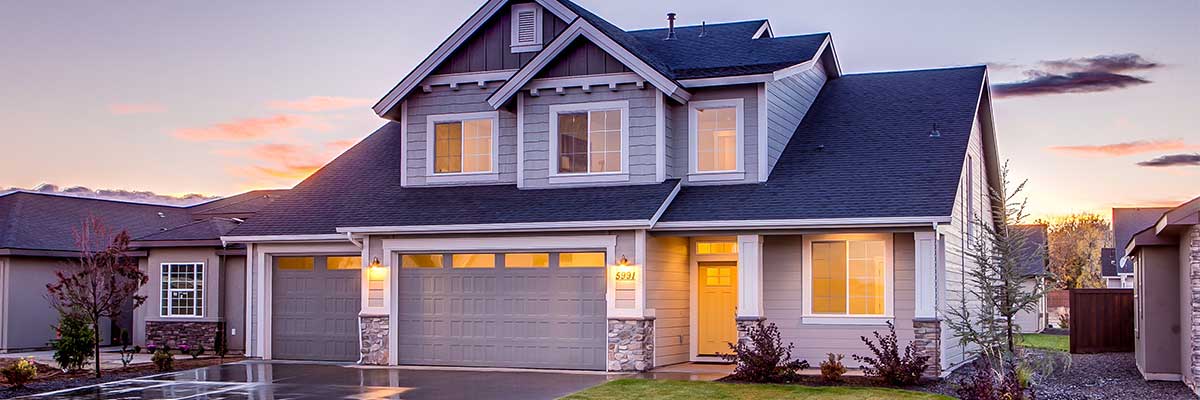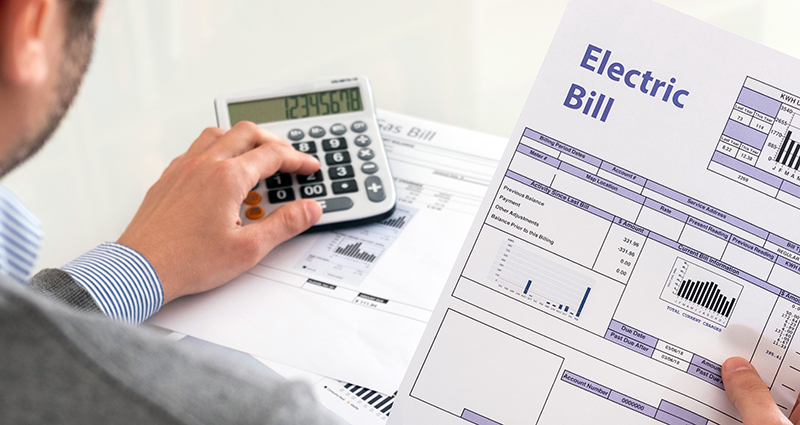Get to know your gas bill units
Virtually all electric companies bill their customers the same way: they measure electricity usage in kilowatt-hours (kWh), multiply that figure by the current kWh rate, add in service fees and charge customers for the total. Natural gas companies are more varied in their approach.
Instead of a universal unit like kWh, different gas utilities use different units to measure gas use. Your gas company likely uses one of the following:
- BTUs, or British Thermal Units – This is the amount of heat required to increase the temperature of 1 pound of water by 1°F.
- Therms – 1 therm is equal to 100,000 BTUs.
- MCFs – An MCF is equal to 1,000 cubic feet of natural gas.
- CCFs – A CCF is equal to 100 cubic feet of natural gas.
If you’re not sure which unit your gas company uses, just check your latest bill. This is also a good opportunity to check the price per unit and compare it to your last several bills to get an idea of how the price fluctuates, and by how much.
If there’s anything on your monthly bill that you don’t understand, visit your gas utility’s website. Most gas companies offer a glossary of terms or a guide to help you understand your bill. It’s important to get this information from your specific utility because of the way gas companies vary in their use of terms.
Find your gas appliances’ usage
A home can function just fine without a single gas appliance, and many do. But because gas is such an efficient fuel for heat-producing appliances, the typical U.S. home has a gas furnace at minimum. Other appliances that may run on gas include your water heater, oven, range, dryer, pool heater, outdoor lamps and fireplace equipment.
Each one of these gas appliances has a BTU rating, which tells you the number of BTUs it consumes per hour. If you have the original documentation for a gas appliance, you’ll find the BTU rating in there.
On appliances that are easy to examine, like your water heater, you may also find the rating printed on a label. But since these labels may be hard to find on things like your oven or gas fireplace, you can also find this information by searching online with a model number or the full product name.
Calculate the cost to run your gas appliances
Once you know the BTU ratings of your appliances, you can estimate how much your gas bill will be affected by determining how much it costs to run each appliance per hour. But first, you’ll need to convert your gas company’s billing unit into BTUs.
Convert your gas bill’s units into BTUs
If the price per unit of gas on your bill is already measured in BTUs, you can skip this step.
Here are the conversions for other units into BTUS:
- Therms – 1 therm equals 100,000 BTUs.
- MCFs – 1 cubic foot of natural gas is equal to 1,028 BTUs. Therefore, an MCF (1,000 cubic feet) is equal to 1,028,000 BTUs.
- CCFs – (100 cubic feet) is equal to 102,800 BTUs.
Let’s say you have a furnace with a BTU rating of 100,000 and your gas bill is measured in MCFs. If one MCF costs $9.00:
- Divide the price per MCF by 1,028,000 to get the price per BTU: $0.00000875486.
- Multiply that by 100,000 to get the price per hour you’ll pay to run the furnace: about 87¢.
What affects the cost to run a gas appliance?
Using this method, figuring out the cost per hour of using your gas appliances is fairly simple. But as you try and estimate your gas bill, you may find that things start to get tricky. Here are some of the variables that can affect the accuracy of your back-of-the-envelope calculations:
- The price of gas. This is always changing, so your calculations won’t hold from month to month. Making things more complicated, gas utilities may bill you based on a predicted gas price and make an adjustment the following month in the form of a credit or additional charge.
- Your actual appliance use. To calculate your gas bill by appliance, you’ll need to estimate how many hours you use each appliance in a given month. This is easier said than done accurately, especially when it comes to appliances like your water heater. Do you have any idea how many hours per day your water heater is actively heating?
- Additional charges. These vary in type, name and amount from one gas utility to the next. Some charges may be flat while others may be variable. Read your bill carefully to understand what each charge covers.
- Tiered pricing. In some states and with some natural gas rate plans, gas gets more expensive the more you use. You may be charged one rate until you’ve used a certain amount of gas, then charged a higher rate until you’ve used a certain amount more, and so on.
Tips to lower your gas bill
If calculating your gas bill inspires you to control your costs, there are a few things you can do. The obvious strategy is to simply use less gas: set the thermostat a little lower in the winter, take shorter showers and use the microwave a little more often.
Space heating accounts for a large share of the typical gas bill, so anything you can do to help your home retain heat will help lower costs. Upgrading insulation, installing multi-pane windows and sealing drafts are great ways to do this.
It’s also important to keep your gas appliances well-maintained and to replace them when they’re nearing the end of their useful lives. When that time comes, shop around for gas-efficient replacements, and don’t forget to check the BTU ratings.



































